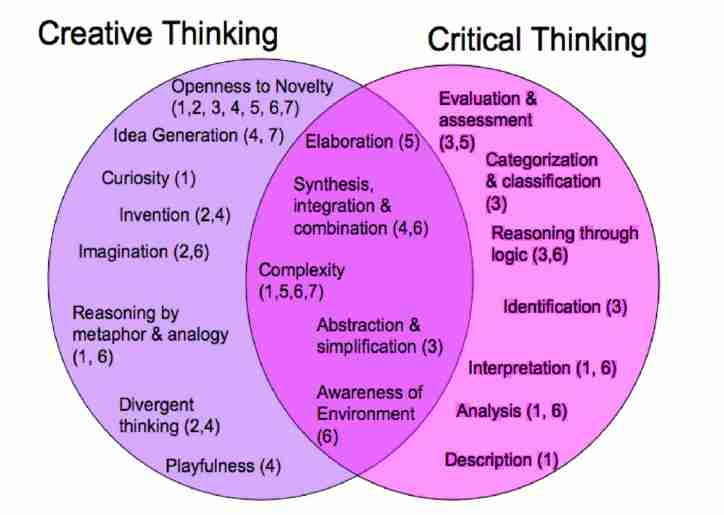



From Puccio et al., (2005), cited in Creative and Critical Thinking: Assessing the Foundations of a Liberal Arts Education, The Five Colleges of Ohio Creative and Crtical Thinking Project, Teagle Project
Much of the thinking we do in college is applied to activities that involve large amounts of reworking and editing. But in many endeavors, efforts that are apparently more spontaneous are required. Thinking in improvisational modes requires several special techniques, and yet is done by virtually all of us at times. Improvisation can be used to solve emergency problems, or create art at the highest levels. Dictionary definitions of improvisation usually refer to "inventing or reciting without preparation", "executing something offhandedly" or "preparing hastily or without previous preparation". Yet often, the preparation for successful improvisation is enormous. However, editing must occur just before and during the act of execution.
We will explore improvisational thinking with the aid of several skilled practitioners of improvisation as guest lecturers and performers. We will ask how improvisational thinking differs from other ways of thinking and how it is similar. We will inquire into the variety of techniques used in improvisation. We will draw from diverse fields and activities which may include jazz, Indian music, rap, Chinese painting and Zen, dance, mime, science, cooking, sports, storytelling, psychotherapy, poetry and stand-up comedy. You will be asked to read articles and books on improvisation, listen to performances, write evaluations of in-class performances and critiques of scholarly articles, and prepare an in-depth term paper on one improvisational activity. You will also have several opportunities to improvise. You can meet with me to discuss your papers and projects, and to explore ways to use improvisation in your individual pursuits.
You will quickly find that understanding of improvisation is linked to understanding of the creative process. One of our required texts directly addresses improvisation; the other creativity. Neither improvisation nor creativity is limited to the arts or any other field. I hope that you will begin to see connections between different fields whose practitioners are motivated by the adventure of discovery. I hope that you will come to think of improvisation as a useful tool to employ in the various activities you will undertake at Amherst and also in whatever areas you choose to specialize.
Philosophy and Goals of FYS 111
Improvisation is a process not a product.
Article on FYS26 bt Katherine Duke
Previous Student Term Paper Topics